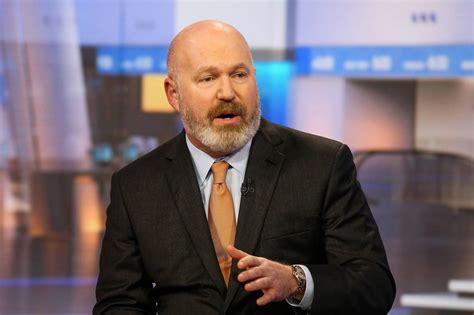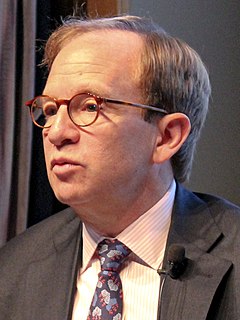A Quote by Barry Ritholtz
Hedge funds are not especially liquid. Many are 'gated' - meaning there are only small windows when you can withdraw your money. They typically have a high minimum investment and often require investors keep their money in the fund for at least one year.
Related Quotes
Hedge funds are investment pools that are relatively unconstrained in what they do. They are relatively unregulated (for now), charge very high fees, will not necessarily give you your money back when you want it, and will generally not tell you what they do. They are supposed to make money all the time, and when they fail at this, their investors redeem and go to someone else who has recently been making money. Every three or four years they deliver a one-in-a-hundred year flood. They are generally run for rich people in Geneva, Switzerland, by rich people in Greenwich, Connecticut.
We are seeing more managed money and, to an extent, institutional money entering the space. Anecdotally speaking, I know of many people who are working at hedge funds or other investment managers who are trading cryptocurrency personally, the question is, when do people start doing it with their firms and funds?
Hedge funds try to produce above-average investment returns using tactics ranging from traditional stock-picking to complex derivative and arbitrage plays. High minimum investments, redemption restrictions and aggressive strategies make them suitable mainly for more sophisticated and well-heeled investors.
I think there are probably too many hedge fund managers in the world, as well as active fund managers. The hedge fund industry is very efficient. We see a lot of hedge funds open and a lot close. It's very binary. You either succeed or fail in the hedge fund world. If you succeed, the amount the managers make it beyond most people's wildest dreams of wealth.
When I was 23, 24, I started covering hedge funds - a lot of this was luck - when no one else did. This was before hedge funds were the prettiest girl in school: this was pre-nose job and treadmill for hedge funds, when nobody talked to them - back then, it was just all about insurance companies and money managers.
Millions of mutual-fund investors sleep well at night, serene in the belief that superior outcomes result from pooling funds with like-minded investors and engaging high-quality investment managers to provide professional insight. The conventional wisdom ends up hopelessly unwise, as evidence shows an overwhelming rate of failure by mutual funds to deliver on promises.
We are going to rebuild our infrastructure. I would say at least double her numbers and - and you`re gonna really need more than that. We have bridges that are falling down. People,investors, people would put money into the fund. The citizens would put money into the fund, and we will rebuild our infrastructure with that fund.
To walk in money through the night crowd, protected by money, lulled by money, dulled by money, the crowd itself a money, the breath money, no least single object anywhere that is not money. Money, money everywhere and still not enough! And then no money, or a little money, or less money, or more money but money always money. and if you have money, or you don't have money, it is the money that counts, and money makes money, but what makes money make money?
Invest in low-turnover, passively managed index funds... and stay away from profit-driven investment management organizations... The mutual fund industry is a colossal failure... resulting from its systematic exploitation of individual investors... as funds extract enormous sums from investors in exchange for providing a shocking disservice... Excessive management fees take their toll, and manager profits dominate fiduciary responsibility.
I went to art school for about a year. I was born and raised in the Willamette Valley in Oregon into a middle-class family who didn't have the funds to say, "Here, kid. Here's your money for school." So I worked real hard during the summer and saved money and was able to go to school for a year and borrowed a little money which I paid back after that first year.
The big advantage that we have as a venture capital firm over a hedge fund or a mutual fund is we have a 13-year lockup on our money. And so enterprise can go in and out of fashion four different times, and we can go and invest in one of these companies, and it's okay, because we can stay the course.
The 1969 experience has been a rude awakening for many hedge-fund investors and has left some of them with strong reservations about the whole concept. For the first time in their relatively short history, the funds are not growing: in fact, some have suffered large withdrawals of capital, and a few have actually folded.


































